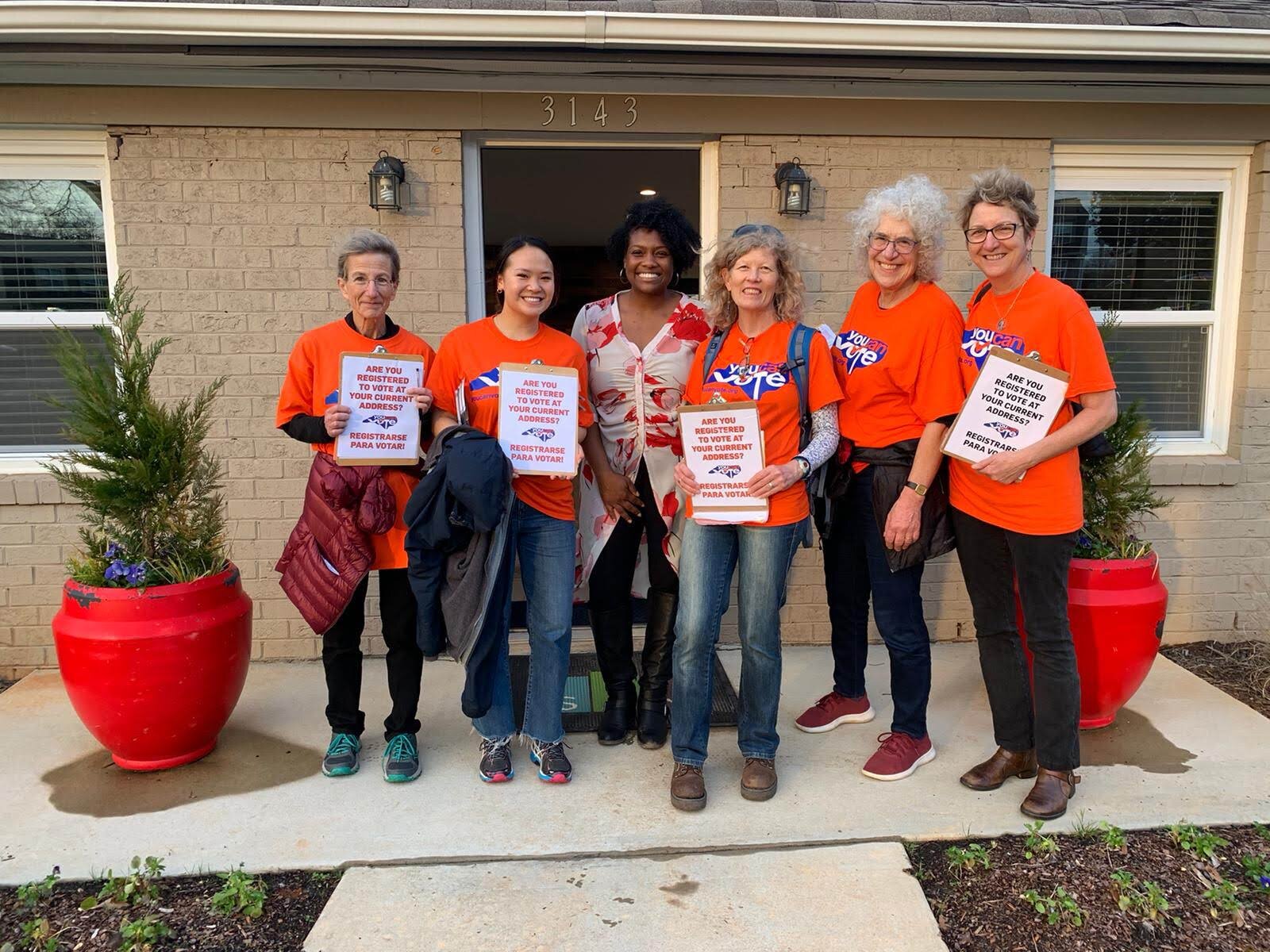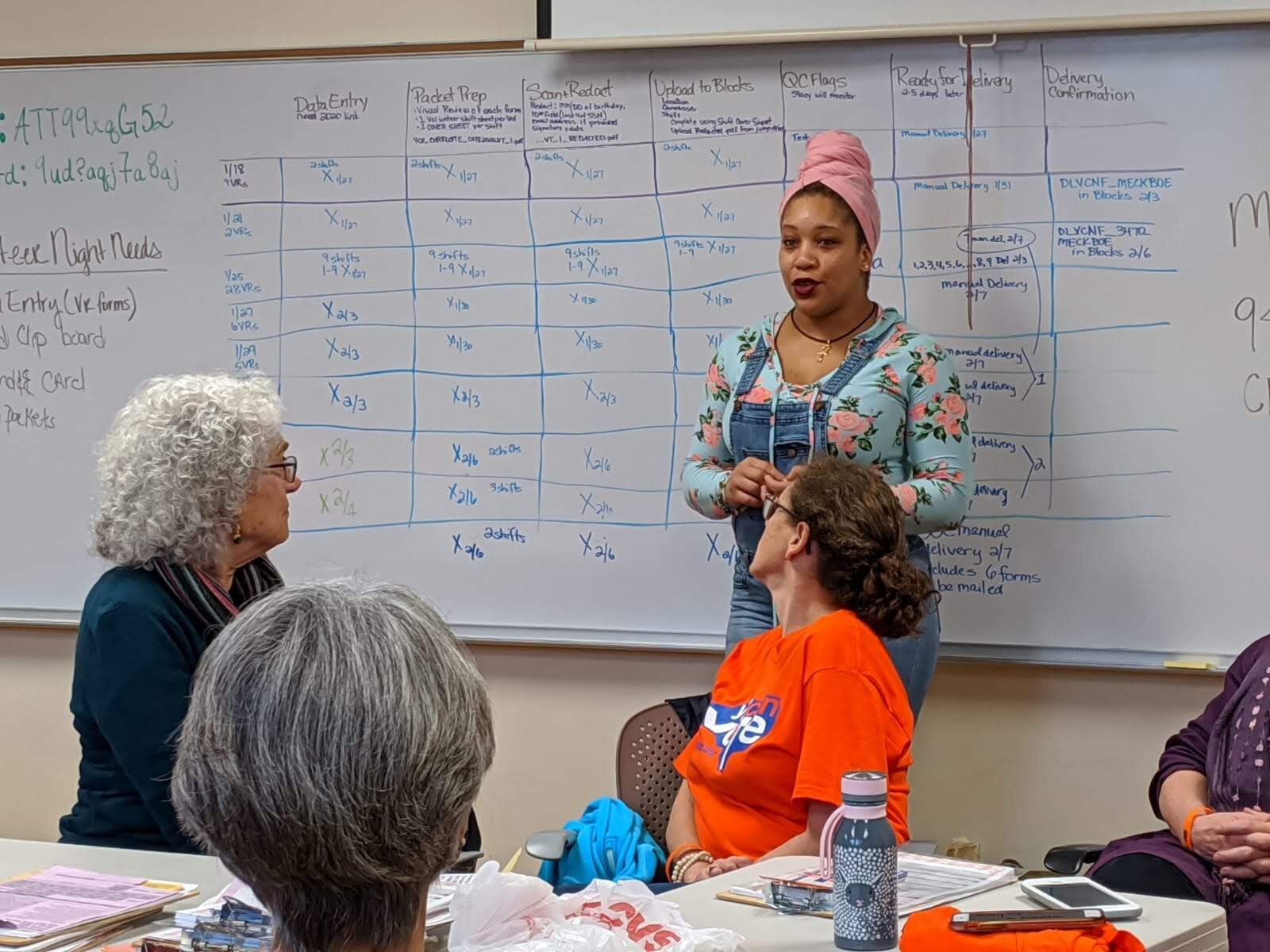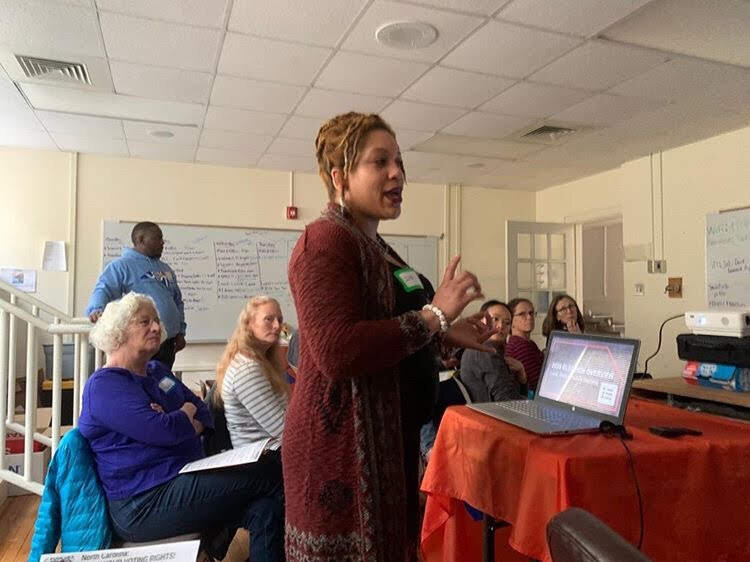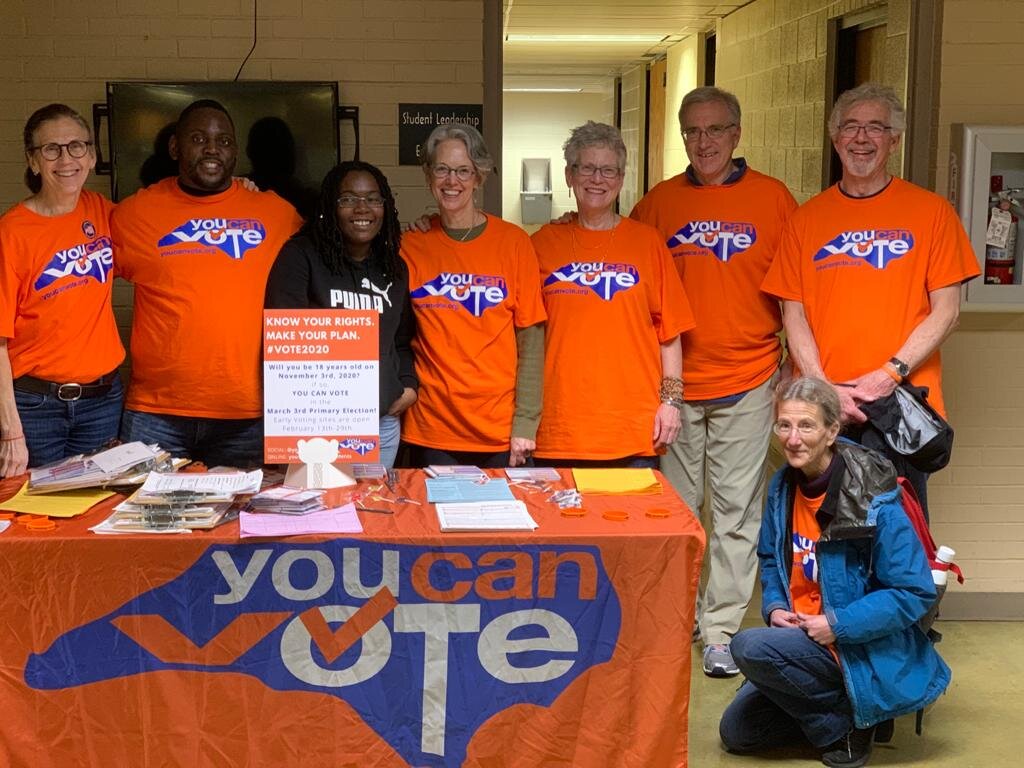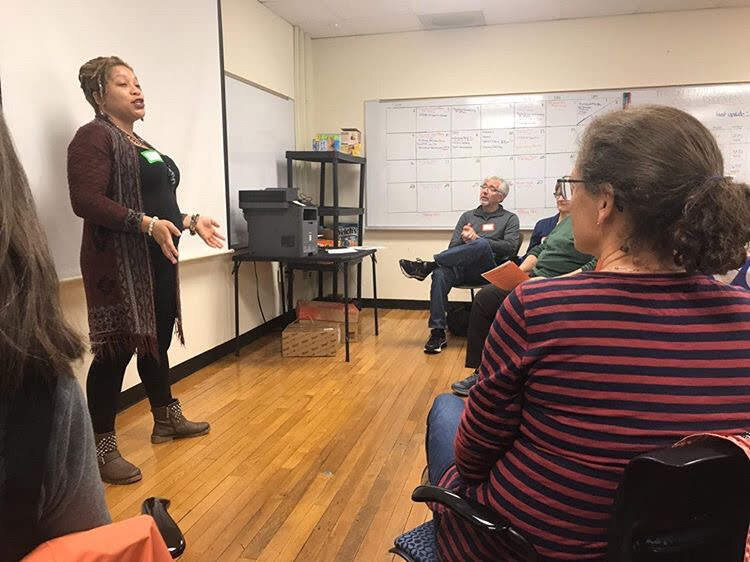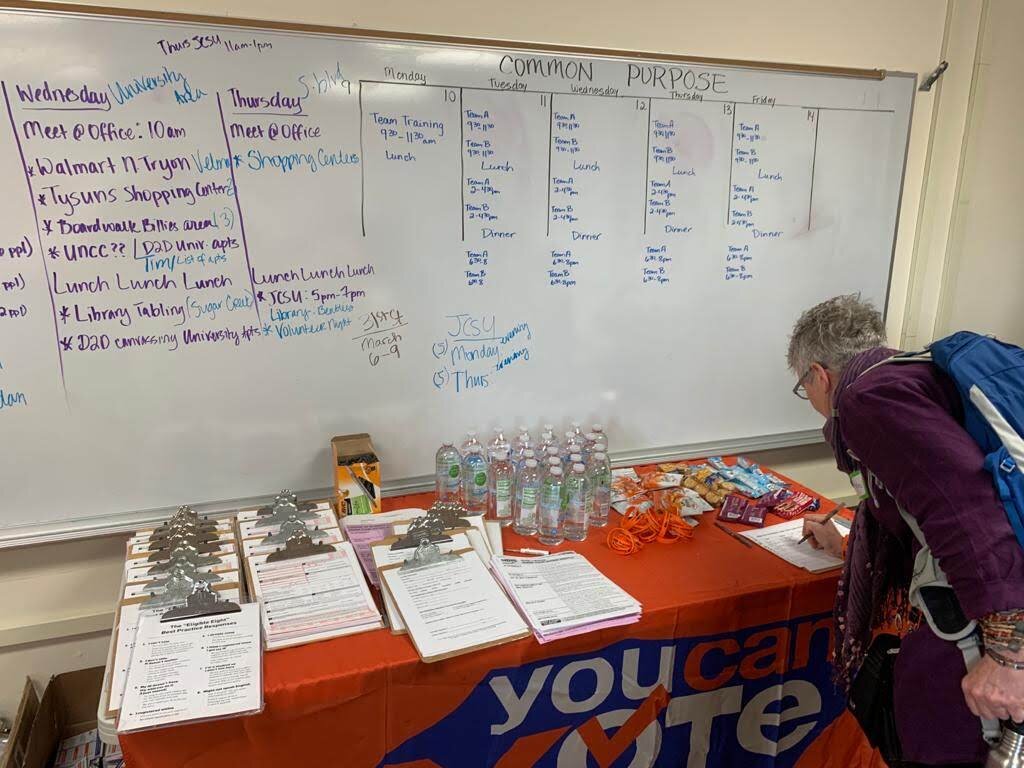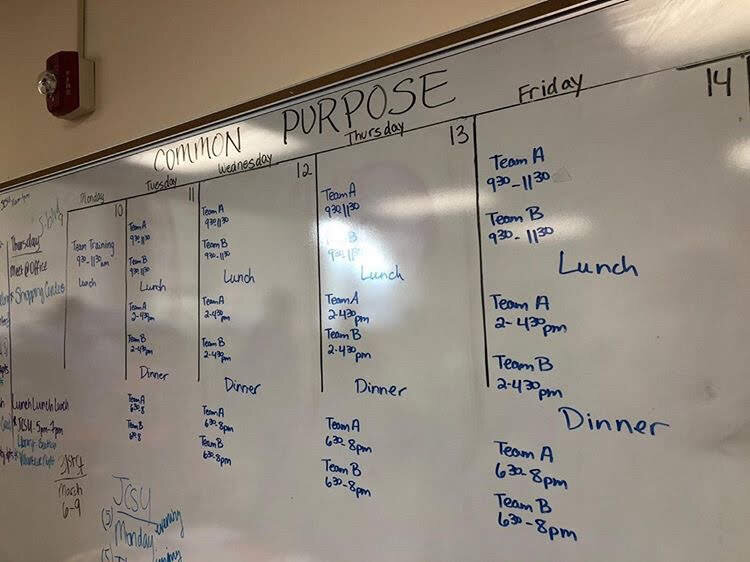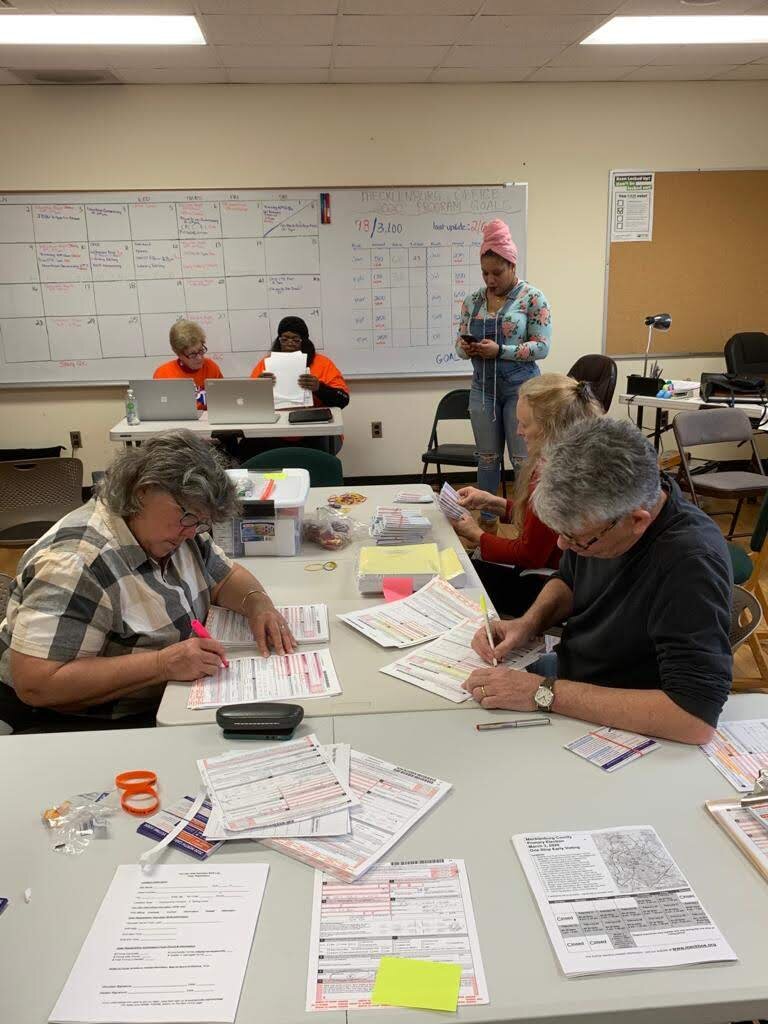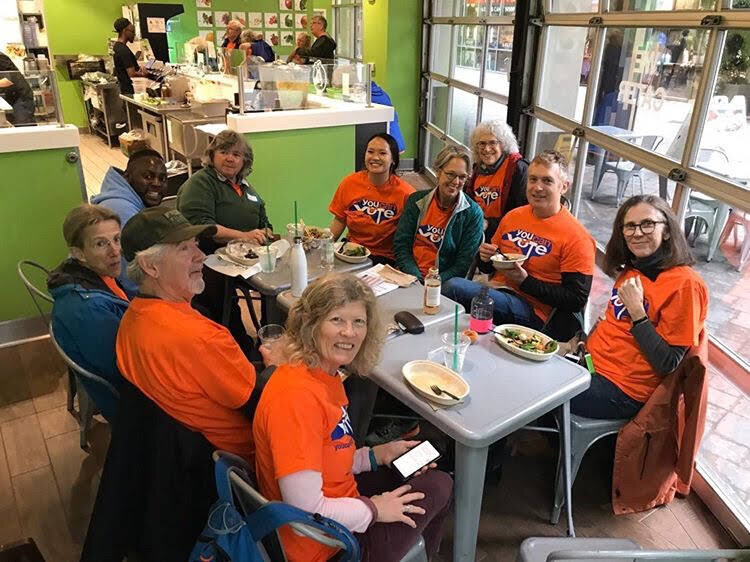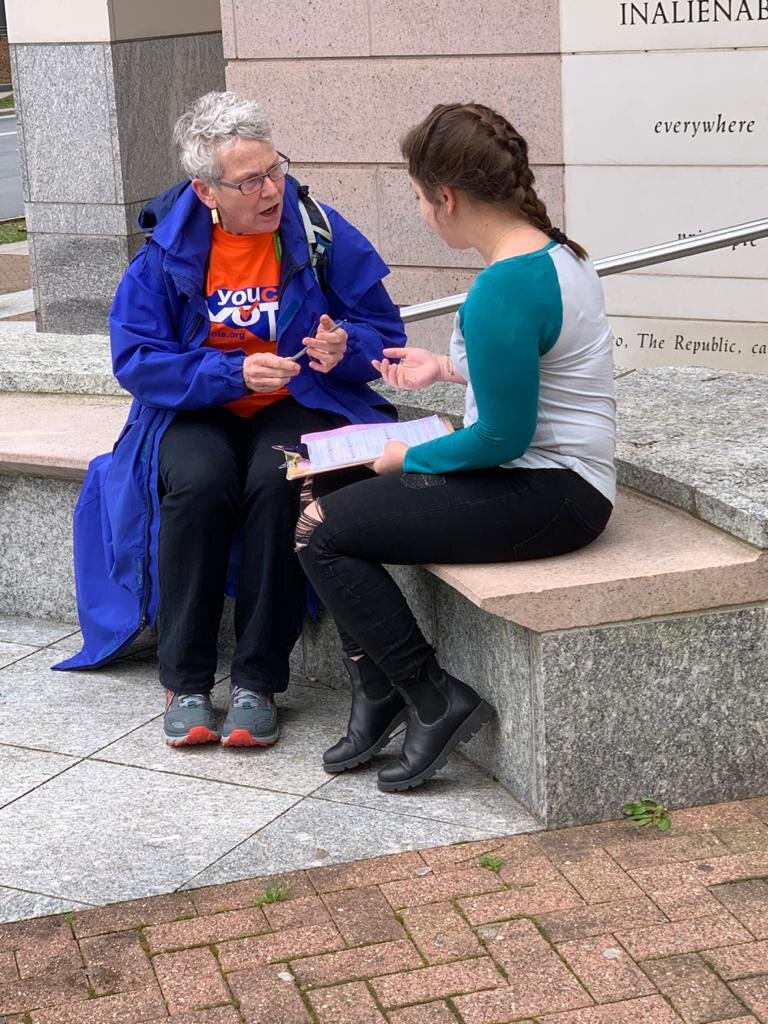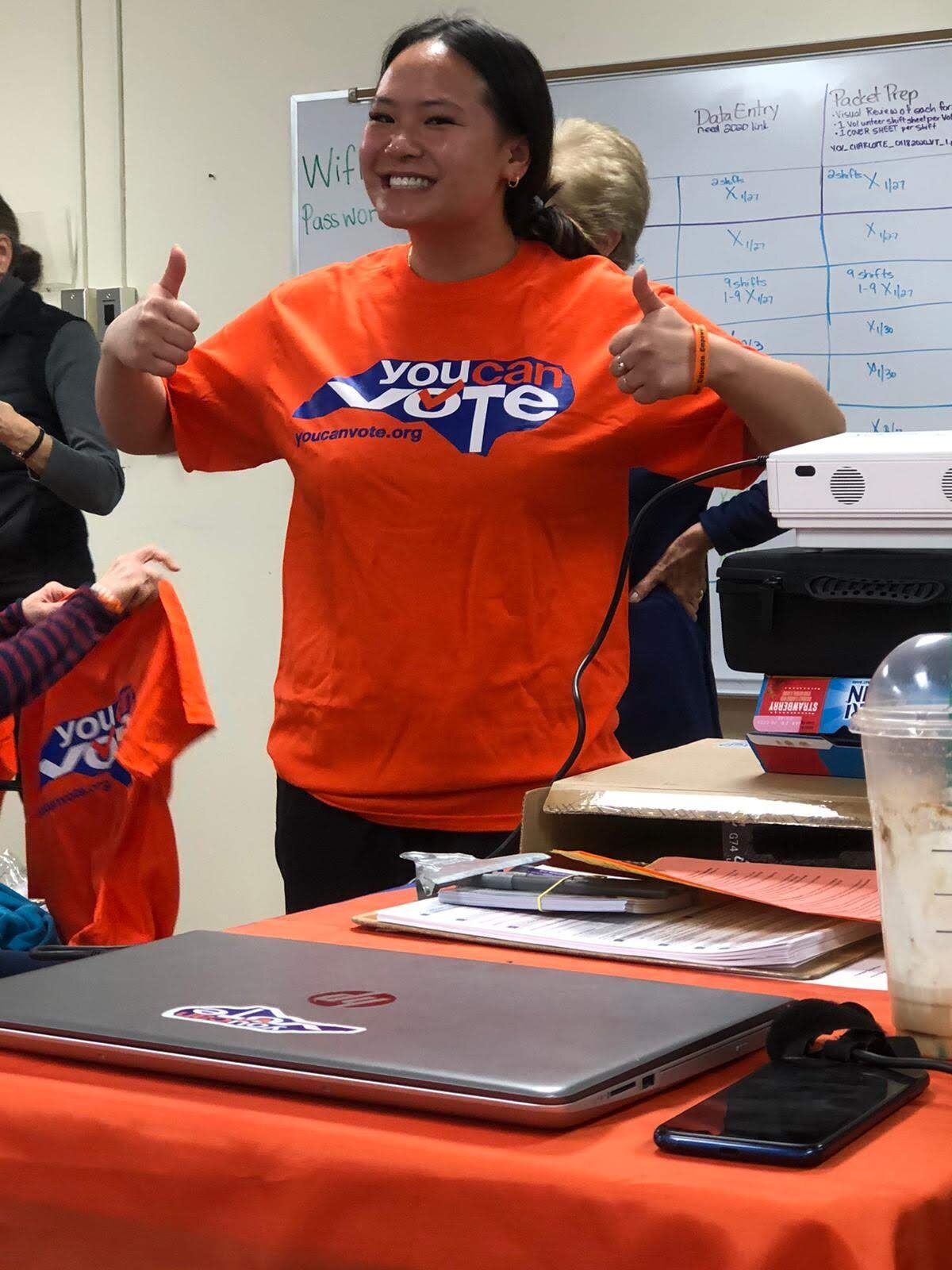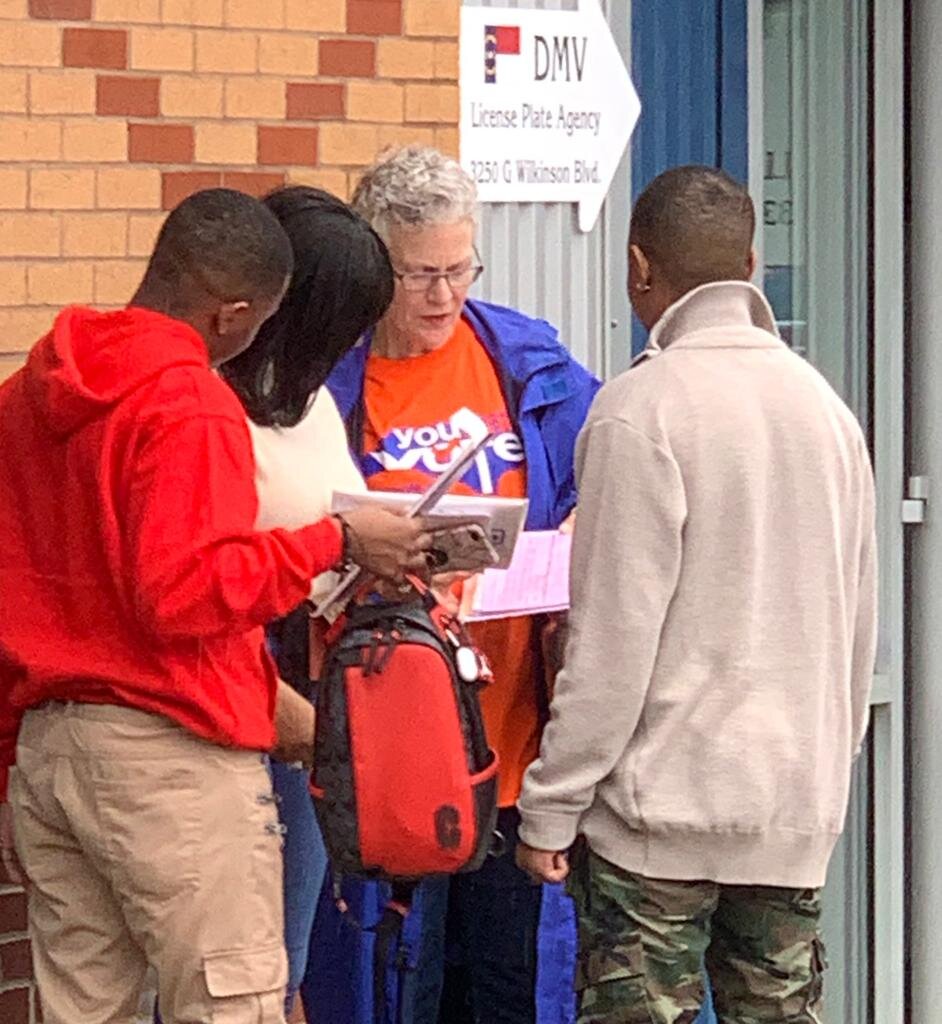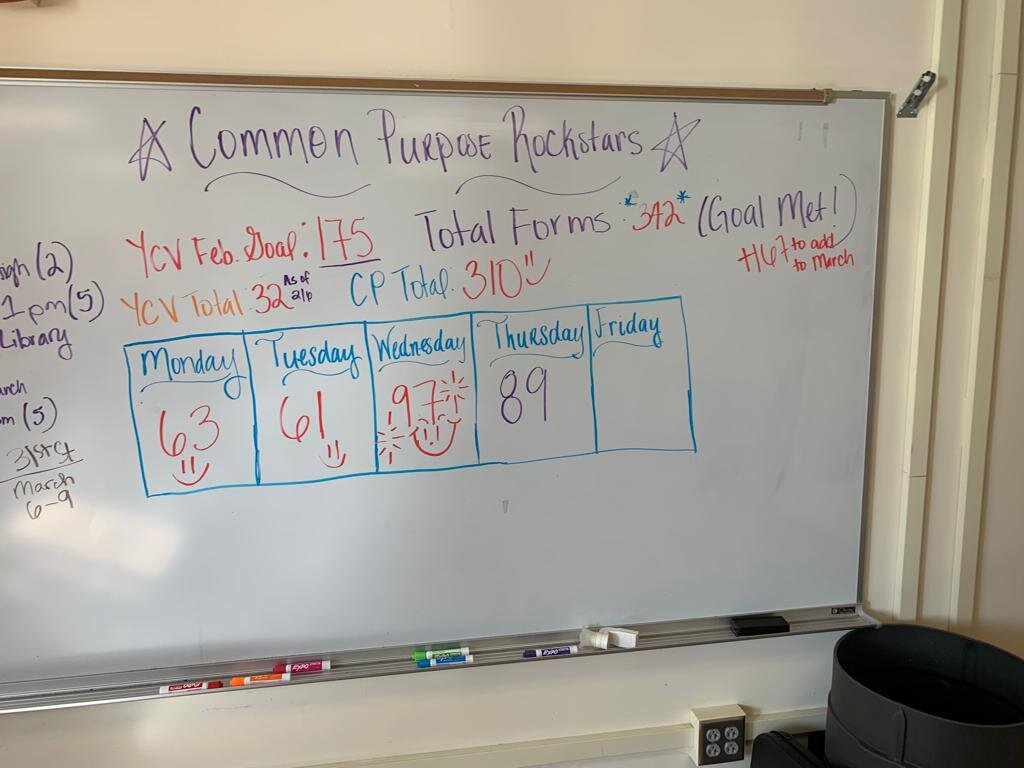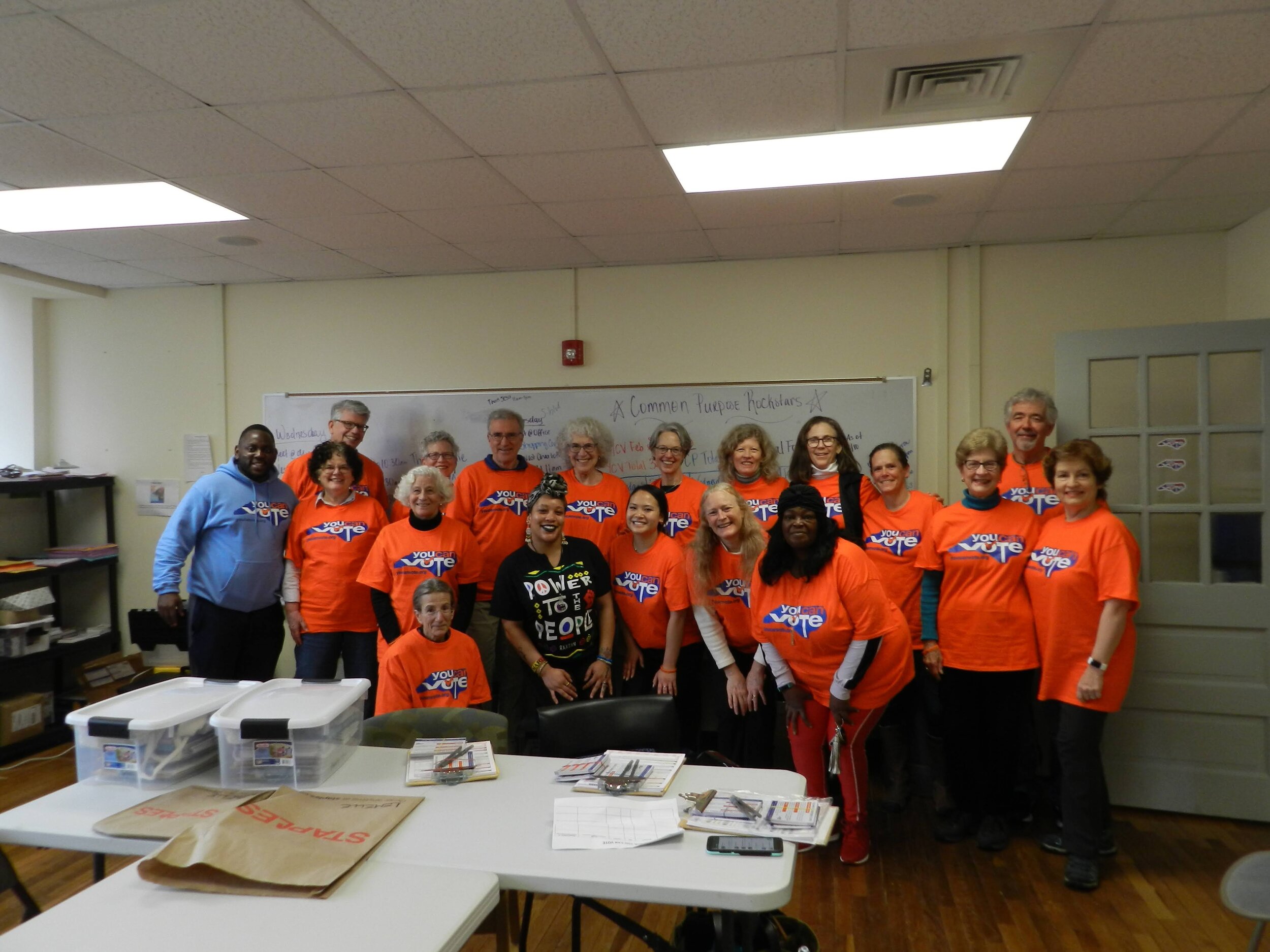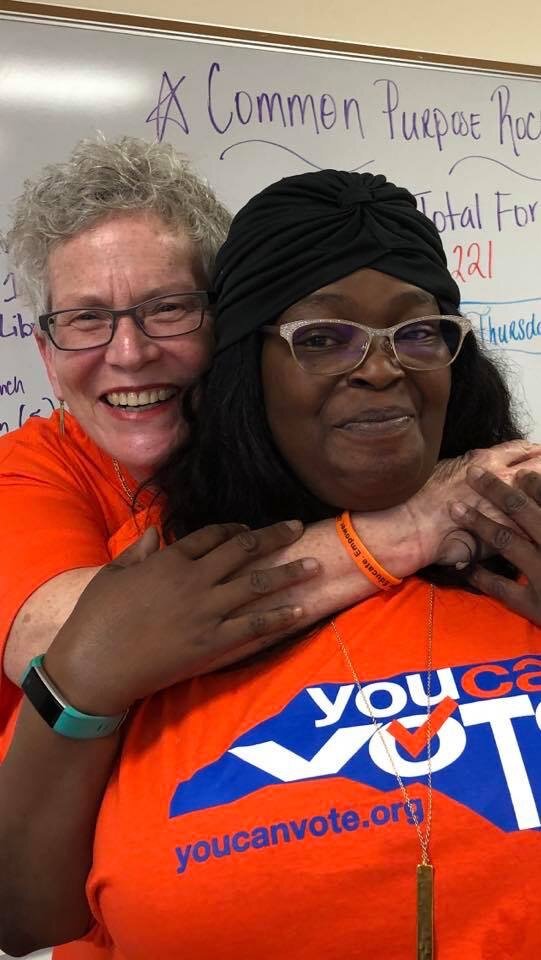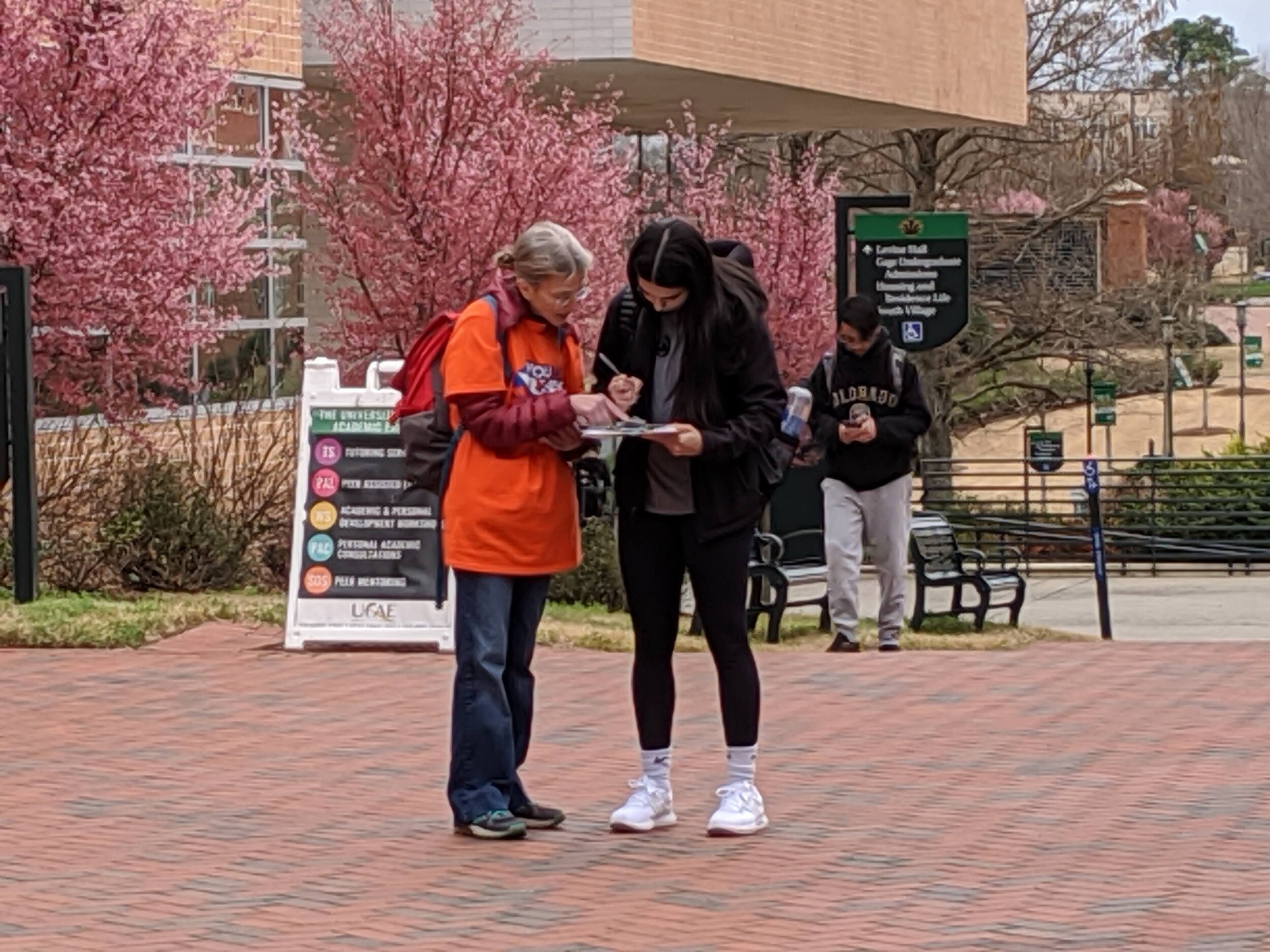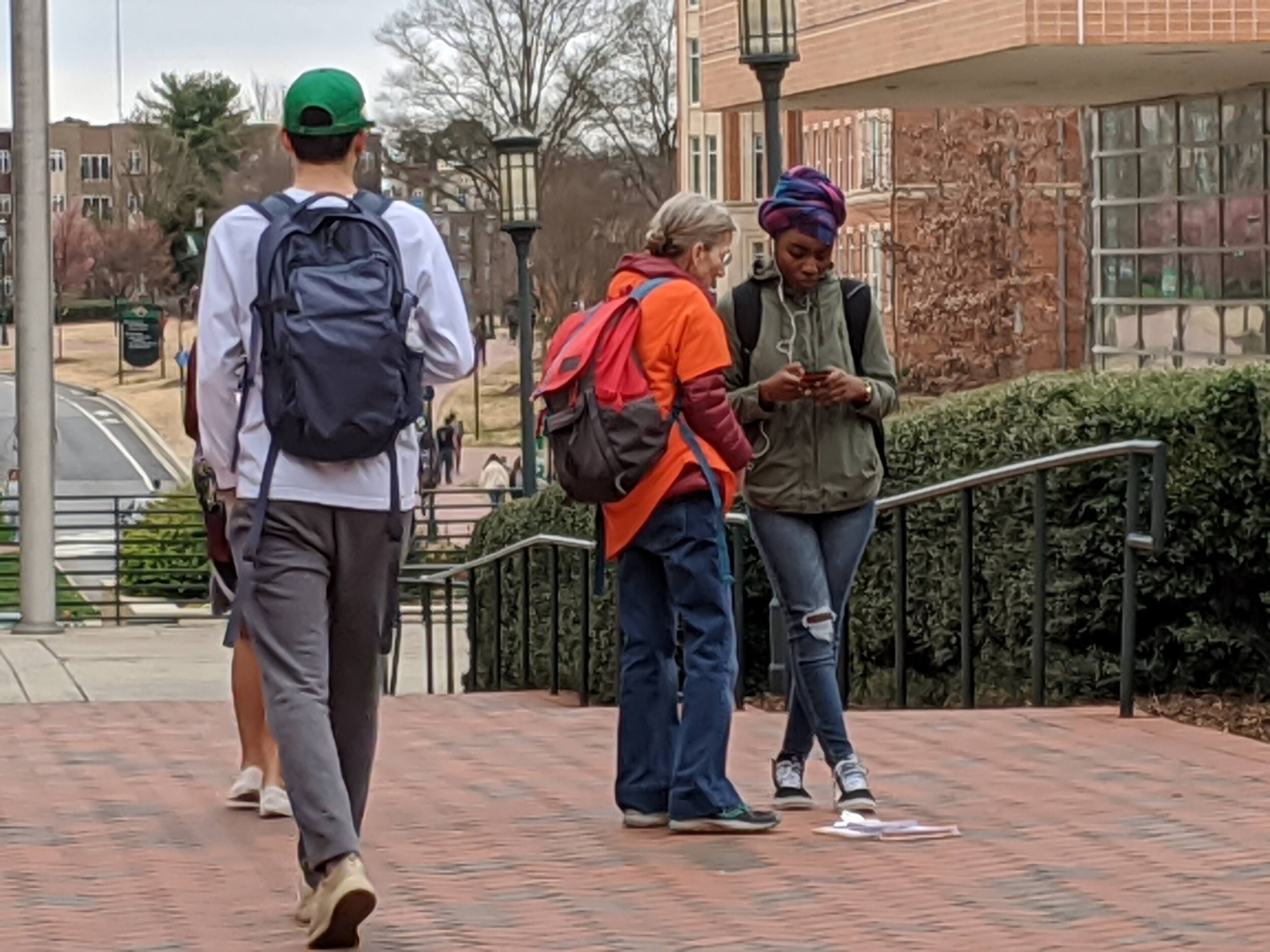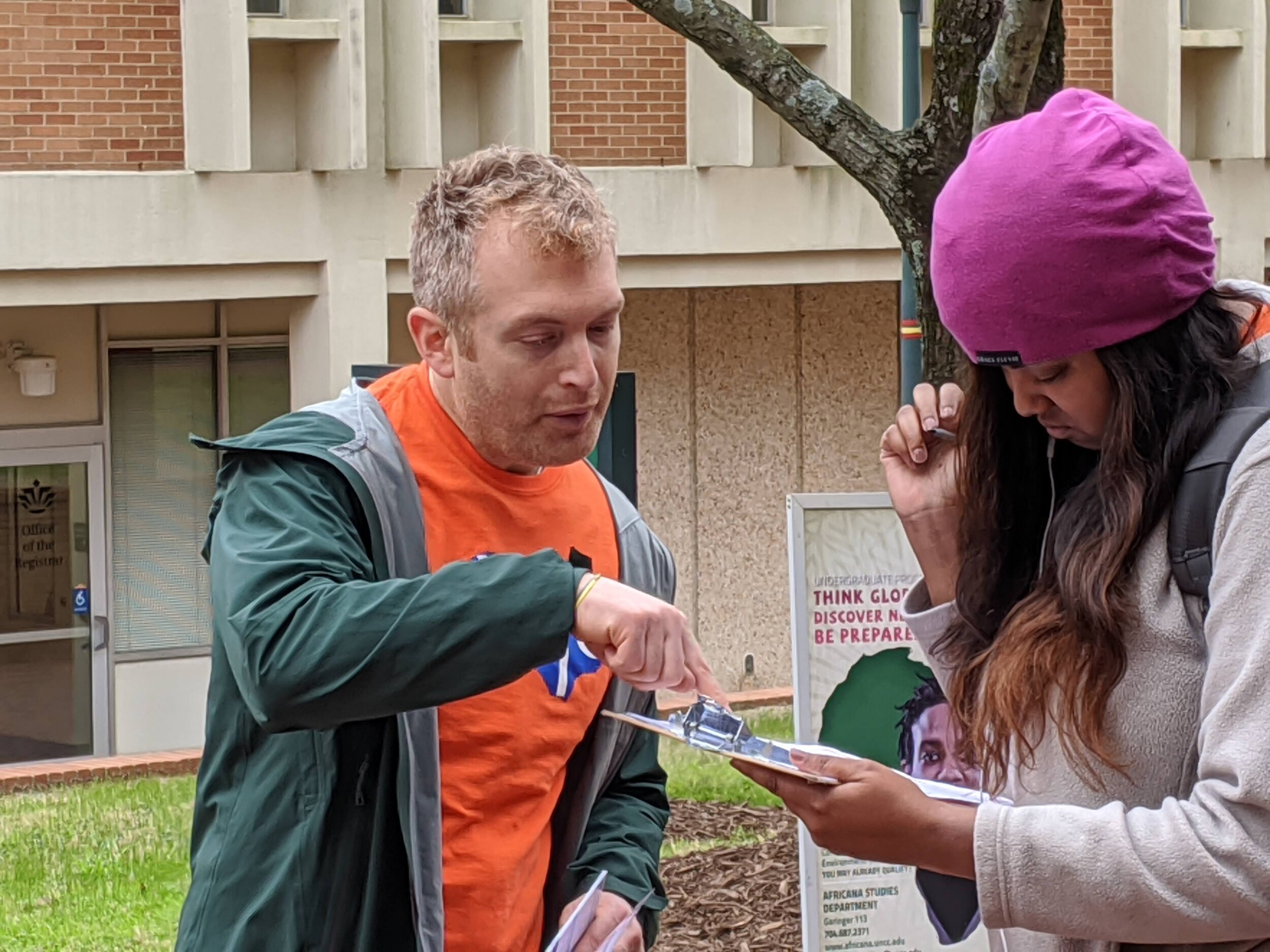Notes From The Field - Charlotte North Carolina
By: Susan Storer Clark
It’s been an exhilarating, exhausting, inspiring week with Common Purpose in Charlotte, North Carolina. We partnered with You Can Vote, an organization that “trains and mobilizes volunteers to register, educate, and empower all North Carolina citizens to successfully cast their ballot.”
We registered 310 people to vote in our time in Charlotte. We also talked to them about how to vote in the upcoming primary and general elections. Because of the work we did, We Can Vote not only reached its goal for all of February but is 160 registrations ahead on their goal for March.
That’s the kind of work I want to do. It’s the reason I joined Common Purpose. I want to do this kind of work because my religious faith impels me to do so.
My denomination has no creed, but it does have seven principles. The first one is that we believe in the inherent worth and dignity of every human being (boldface mine). The fifth one says that we believe in the right of conscience and the use of the democratic process within our congregations and in society at large. To me, that means that every citizen has a right to vote, regardless of race, sex, sexual orientation, poverty, or previous condition of incarceration.
Because the right to vote is under threat in so many places in our country, I decided this is the work I want to do, for this election cycle and probably for many years to come.
I didn’t know anybody in our group of eighteen before I came to Charlotte. My flight got canceled, so I missed the whole first day of getting to know people. I was a little afraid that I would be out of the loop and playing catch-up the whole time.
I needn’t have worried. I got a quick orientation from our team captain Jordan Goldwarg and from Zion Lemelle, the regional director for We Can Vote. Soon I was with my team out on a sidewalk, asking people if they were registered where they currently live.
On my first day there I realized that people who will travel on their own time and their own dime to do this work are likely to be interesting, engaging people. That’s because they all were. It was a very accomplished group: teachers, doctors, nurses, former political staffers, people who had built projects and programs to benefit their community. Because we were working together on something we cared about, it was easy to build camaraderie.
There’s a lot at stake for North Carolina in the 2020 elections. Their election districts were recently redrawn, in obedience to a court order to fix obvious gerrymandering. There’s a vulnerable Democratic governor up for re-election, as well as a vulnerable Republican senator. Charlotte’s current Republican member of Congress won a narrow victory in 2018 and is considered vulnerable this year.
The citizens of North Carolina—all the citizens of North Carolina—have a right to determine the future of their state. I think that, in some small way, I have helped. Some people who should be able to vote, will be able to vote, because of what I did. And that makes me happy.
